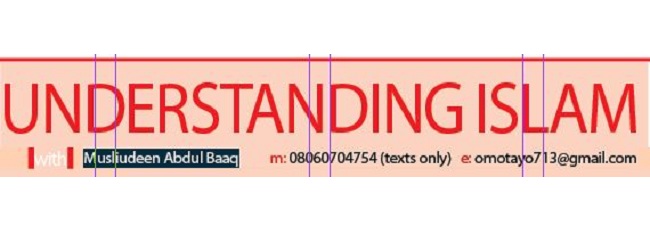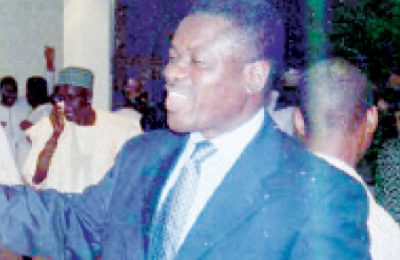IN the name of Allah, Most Gracious, Most Merciful.
Abrahah, who came from Abyssinia, a country in Africa, conquered Yemen and was made vice-regent there. Later, he noticed that at a certain time of the year, large numbers of people would travel from all over Yemen and the rest of Arabia to Mecca. He asked the reason for this and was told that they were going on pilgrimage to the Ka’bah. Abrahah hated the idea of Mecca being more important than his own country, so he decided to build a church of coloured marble, with doors of gold and ornaments of silver, and ordered the people to visit it instead of the Ka’bah. But no one obeyed him.
Abrahah became angry and decided to destroy the Ka’bah. He prepared a large army led by an elephant and set off towards Mecca. When the Meccans heard that he was coming they became very frightened. Abrahah’s army was huge and they could not fight it. But how could they let him destroy the Holy Ka’bah? They went to ask the advice of their leader, ‘Abd al-Muttalib. When Abrahah arrived outside Mecca, ‘Abd al-Muttalib went to meet him. Abrahah said, ‘What do you want?’ Abrahah had taken Abd al-Muttalib’s camels, which he had found grazing as he entered Mecca, so Abd al-Muttalib replied, ‘I want my camels back’. Abrahah was very surprised and said, ‘I have come to destroy your Holy Ka’bah, the holy place of your fathers, and you ask me about some camels?’ ‘Abd al-Muttalib replied calmly, ‘The camels belong to me; the Ka’bah belongs to Allah and He will protect it’. Then he left Abrahah and went back to Quraysh and ordered them to leave Mecca and wait for their enemies in the mountains.

In the morning, Abrahah prepared to enter the city. He put armour on his elephant and drew up his troops for battle. He intended to destroy the Ka’bah and then return to Yemen. At that moment, however, the elephant knelt down and refused to get up, no matter how much the soldiers tried to get it to move by beating it. But when they turned its face in the direction of Yemen, it immediately got up and started off. In fact, it did the same in any other direction, but as soon as they pointed it towards Mecca, it knelt down again.
Suddenly, flocks of birds appeared from over the sea. Each bird carried three stones as small as peas and they dropped them on Abrahah’s army. The soldiers suddenly fell ill. Even Abrahah was hit by the stones and fled in fear with the rest of his army back to Yemen, where he later died. On seeing their enemy flee, the Arabs came down from the mountains to the Ka’bah and gave thanks to Allah.
After this, Quraysh gained great respect and became known as ‘the people of Allah’, and the year in which these events took place, 570A.D, was named the ‘Year of the Elephant’. In that year, Allah had saved the Ka’bah and he would soon bring forth a prophet from among Quraysh.
One day, while travelling north, one of the Arab tribes from Mecca met a hermit in the desert. Some of the men stopped to speak with him.

“Hast thou not seen how thy Lord dealt with the owners of the Elephant? Did He not bring their stratagem to naught, and send against them swarms of flying creatures, which pelted them with stones of baked clay, and made them like green crops devoured (by cattle)?” (Qur’an 105.1-5).
Hermits were known to be wise and the Arabs often asked their advice. The hermit asked where they had come from. When they replied that they were from Mecca, he told them that Allah would soon send a prophet who would come from their people. They asked the name of this prophet and the hermit answered that his name would be Muhammad and that he would guide them to a new way of life.
Meanwhile, in Mecca, Aminah, although saddened by the loss of her husband, felt especially well and strong as she awaited the birth of her baby. During this time, she dreamt of many things. On one occasion, it was as if a great light were shining out of her, and on another, she heard a voice telling her that she would have a boy and that his name would be Muhammad. She never forgot that voice but she told no one about it.
On Monday, the 12th day of Rabi al-Awwal in the Year of the Elephant, Aminah gave birth to a son. Allah sent man many signs when one of His chosen prophets was born and on that 12th day of Rabi al-Awwal in the year 570 A.D, many such signs were seen. Some were seen by Jewish scholars who had read in their scriptures of a coming prophet.
One of these learned men in Yathrib, for instance, saw a brilliant new star he had never seen before as he studied the heavens that night. He called the people around him and, pointing the star out to them, told them a prophet must have been born. That same night, another Jew was passing by the meeting place of the leaders of Quraysh in Mecca. He asked them if a baby boy had just been born and told them that if it were true, this would be the Prophet of the Arab nation.
Aminah sent news of the birth to her father-in-law, ‘Abd al-Muttalib, who was sitting near the Ka’bah at the time. He was very happy and began at once to think of a name for the boy. An ordinary name would not do. Six days came and went and still he had not decided. But on the seventh day, as he lay asleep near the Ka’bah, ‘Abd al-Muttalib dreamt that he should give the baby the unusual name of Muhammad, just as Aminah herself had dreamt. And the child was called Muhammad (pbuh), which means ‘the Praised One’. When ‘Abd al-Muttalib told the leaders of Quraysh what he had named his grandson, many of them asked, ‘Why did you not choose the sort of name that is used by our people?’ At once he replied, ‘I want him to be praised by Allah in the heavens and praised by men on earth’.
Like many other women in Mecca, Aminah decided to send her son away from the city for his early years to the desert where it was more healthy.
Women from the desert used to come to Mecca to collect the new babies and they would then keep them until they developed into strong children, for which they were well paid by the parents. Among the women who travelled to Mecca to fetch a new baby at the time Aminah’s son was born was a Bedouin woman called Halimah. With her was her husband and baby son. They had always been very poor but this year, things were harder than ever because there had been famine.
The donkey that earned Halimah on the journey was so weak from hunger that he often stumbled. Halimah’s own baby son cried all the time because his mother could not feed him properly. Even their she-camel did not give them one drop of milk. Halimah did not know what to do. She thought to herself, ‘How can I possibly feed another baby when I haven’t got enough milk even for my own son?’
At last, they reached Mecca. All the other women of the tribe to which Halimah belonged, the Bani Sa’d, found a child to take back with them, but not Halimah. The only baby left was Muhammad (pbuh). Usually the father paid the wet-nurse but Mohammed’s father was dead. So, no one wanted to take him, even though he was from one of the noblest families of Quraysh. Halimah did not want to take him either, but she did not want to be the only woman to go back to her tribe without a baby to bring up.
She asked her husband whether she should take Muhammad (pbuh) or not. He advised her to do so, adding, ‘Perhaps Allah will bless us because of him’. They started on the return journey and as soon as Halimah began to feed Muhammad (pbuh) her milk suddenly increased and she had enough for him as well as her baby son. When they were back home, everything began to change.
The land became green, and the date trees, one of their main sources of food, gave lots of fruit. Even the sheep and their old she-camel began to give plenty of milk.
Halimah and her husband knew that this good fortune had come because they had the new baby, Muhammad (pbuh), whom they had come to love as if he were their own son.
When Muhammad (pbuh) was two years old, Halimah took him back to his mother. She pleaded with Aminah, however, to let her keep him for a little longer, and to her great joy the mother agreed. During his time with Halimah’s family in the desert, Muhammad (pbuh) played with her children and together they would take the sheep out to graze. At other times, however, Halimah would often find him sitting alone. It is said that on one occasion, two angels came to Muhammad (pbuh) and washed his heart with snow. In this way, Allah made his heart pure for He intended Muhammad (pbuh) to be greater than any man ever born and to become the Seal of the Prophets.
“Did We not expand thy breast for thee And eased thee of thy burden Which weighed down thy back; And exalted thy fame? So truly with hardship comes ease, Truly with hardship comes ease. So when thou art relieved, still toil And strive to please thy Lord.” (Qur’an 94.1-8).
When Halimah finally took Muhammad (pbuh) back to Aminah, he was a healthy, strong boy. Later he would look back with joy on the time he had spent with Halimah, and he always thought of himself as one of the Bani Sa’d.
Read Also: Why we can’t determine, influence fuel price — Dangote







